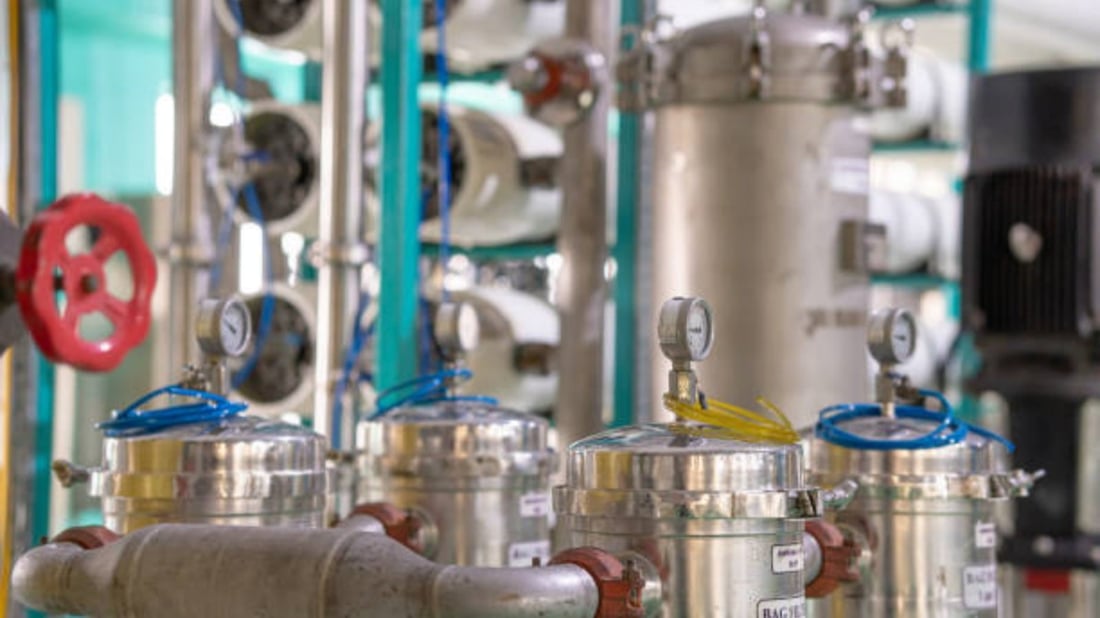Why the return line fuel filter is Crucial for Your Vehicle's Performance
When it comes to maintaining the optimal performance of your vehicle, there are several components that play a crucial role. One such component is the return line fuel filter. This often overlooked part of the fuel system is responsible for filtering out impurities and contaminants from the fuel before it returns to the fuel tank. In this article, we will explore the importance of the return line fuel filter and how it contributes to the overall efficiency and longevity of your vehicle.
1. Preventing Damage to Fuel Injectors of the return line fuel filter
One of the primary functions of the return line fuel filter is to protect the fuel injectors from damage. Fuel injectors are responsible for delivering precise amounts of fuel to the engine's combustion chambers. However, they are highly sensitive to even the smallest particles or debris present in the fuel. The return line fuel filter ensures that these contaminants are removed before the fuel reaches the injectors, thus preventing potential clogs or blockages that could lead to costly repairs.
2. Maintaining Fuel System Efficiency of the return line fuel filter
A clean and properly functioning return line fuel filter is essential for maintaining the overall efficiency of your vehicle's fuel system. When the filter becomes clogged or saturated with contaminants, it restricts the flow of fuel and can cause a drop in fuel pressure. This, in turn, can lead to poor fuel economy, reduced engine performance, and even stalling. Regularly replacing the return line fuel filter helps ensure that fuel flows smoothly through the system, allowing your vehicle to perform optimally.
3. Extending the Life of the Fuel Pump
The fuel pump is another critical component of your vehicle's fuel system. It is responsible for pumping fuel from the tank to the engine. When the return line fuel filter is dirty or clogged, it places extra strain on the fuel pump. The pump has to work harder to push fuel through the filter, leading to increased wear and tear. By regularly replacing the return line fuel filter, you can help extend the life of your fuel pump and avoid costly repairs or replacements.
4. Protecting the Engine from Contaminants of the return line fuel filter
In addition to safeguarding the fuel injectors, the return line fuel filter also plays a vital role in protecting the engine itself. Contaminants present in the fuel, such as dirt, rust, or debris, can cause significant damage to engine components over time. By removing these impurities, the return line fuel filter helps prevent premature wear and tear, ensuring that your engine remains in good condition and operates smoothly.
5. Enhancing Overall Vehicle Performance of the return line fuel filter
Optimal fuel quality is crucial for achieving and maintaining peak performance in your vehicle. A clean return line fuel filter ensures that only clean fuel reaches the engine, allowing it to operate at its best. When the fuel system is free from contaminants, you can expect improved acceleration, smoother idling, and overall better performance from your vehicle.
6. Easy and Cost-Effective Maintenance of the return line fuel filter
Maintaining the return line fuel filter is relatively simple and cost-effective compared to other components of the fuel system. Regularly replacing the filter at recommended intervals can help avoid more expensive repairs down the line. It is a small investment that can go a long way in preserving the health and efficiency of your vehicle.
7. Signs of a Failing Return Line Fuel Filter
It is important to be aware of the signs that indicate a failing return line fuel filter. Some common symptoms include decreased fuel efficiency, engine misfires, difficulty starting the engine, and a noticeable decrease in overall performance. If you observe any of these signs, it is advisable to have your return line fuel filter inspected and replaced if necessary.
8. Regular Replacement Interval
The recommended replacement interval for the return line fuel filter can vary depending on the make and model of your vehicle. It is best to consult your vehicle's owner manual or speak with a trusted mechanic to determine the appropriate schedule for replacement. However, as a general guideline, it is recommended to replace the return line fuel filter every 30,000 to 40,000 miles or every 2 to 3 years.
9. Professional Inspection and Replacement
While some vehicle owners may choose to replace the return line fuel filter themselves, it is often recommended to have a professional inspection and replacement. Experienced mechanics have the necessary tools and expertise to ensure that the replacement is done correctly, and that the fuel system is thoroughly inspected for any other potential issues.
10. Conclusion
The return line fuel filter may be a small and often overlooked component of your vehicle's fuel system, but its role in maintaining overall performance and longevity cannot be underestimated. By regularly replacing the filter, you can protect vital engine components, enhance fuel system efficiency, and ensure that your vehicle operates at its best. Investing in the maintenance of your return line fuel filter is a small price to pay for the long-term health and performance of your vehicle.

